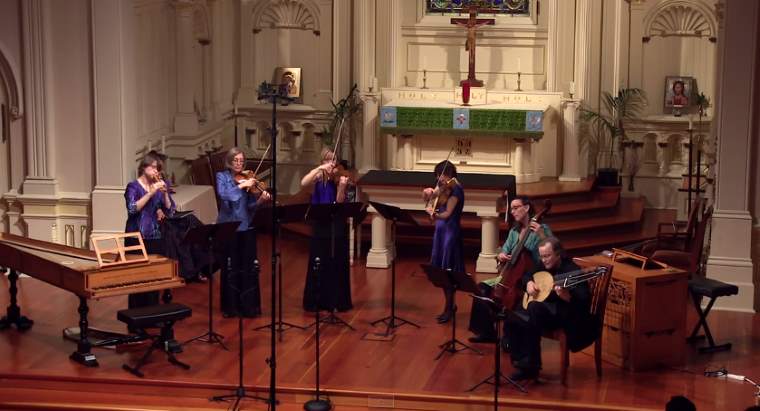Phoebe Jevtović Rosquist (soprano) and David Tayler (archlute) perform Flow My Tears (Lachrimae), a lute song (specifically, an “ayre”) by the Renaissance composer, lutenist, and singer John Dowland (1563 – buried 20 February 1626). HD video from the “Saturday Night at the Movies” concert presented by the award-winning early music ensemble Voices of Music, January 2014, in San Francisco.
John Dowland’s Flow My Tears (Lachrimae)
“Flow My Tears” is a lute song by John Dowland, first published in 1600 in his collection “The Second Booke of Songs or Ayres.” This piece is one of Dowland’s most famous and emotionally charged compositions, often considered a quintessential example of the Elizabethan lute song, a genre in which the lute accompanies a solo vocal line. The song’s melancholy mood and Dowland’s masterful melodic phrasing encapsulate the spirit of the Renaissance’s fascination with themes of despair, unrequited love, and the fleeting nature of life.
The text of “Flow My Tears” speaks to profound sorrow and lamentation, inviting the listener into a world of darkness and grief where the narrator mourns his fate and the loss of former joys. The lyrics are rich with poetic imagery and express a deep sense of longing and melancholy. This sense of despair is underscored by Dowland’s use of falling melodic lines and a minor key, which together enhance the song’s plaintive quality.
Musically, “Flow My Tears” is characterized by its expressive melody, intricate lute accompaniment, and the sensitive setting of the text, all of which contribute to the piece’s enduring popularity. The song is structured in a series of verses, each of which is both reflective and expressive, allowing the performer to explore a range of emotions within the framework of Dowland’s composition.
Dowland was known not only for his exceptional skills as a composer and lutenist but also for his melancholic disposition, famously encapsulated in his motto “Semper Dowland, semper dolens” (Always Dowland, always grieving). “Flow My Tears” perfectly embodies this personal and artistic sentiment, making it a seminal work in the early music repertoire and a favorite among performers and audiences alike for its haunting beauty and emotional depth.
The song also had a profound influence on subsequent generations of composers and musicians, with its themes and musical language resonating through the ages. Its legacy is a testament to Dowland’s genius in capturing the human experience’s complexity and depth through the medium of song.
Dowland’s song, also known as “Lachrimae”, which means “tears” in Latin, and its melody became very well-known and influential, and are a prime example of the contemporary fashion for melancholia. It was the most famous English song of the early 17th century and was well-known throughout Europe–many composers wrote variations on Dowland’s theme and harmonies. Originally composed as an instrumental under the name Lachrimae pavane in 1596, it is Dowland’s most famous ayre, and became his signature song, literally as well as metaphorically: he would occasionally sign his name “Jo. Dolandi de Lachrimae”.
Flow My Tears Lyrics
Flow, my tears, fall from your springs!
Exiled forever, let me mourn;
Where night’s black bird her sad infamy sings,
There let me live forlorn.
Down vain lights, shine you no more!
No nights are dark enough for those
That in despair their last fortunes deplore.
Light doth but shame disclose.
Never may my woes be relieved,
Since pity is fled;
And tears and sighs and groans my weary days, my weary days
Of all joys have deprived.
From the highest spire of contentment
My fortune is thrown;
And fear and grief and pain for my deserts, for my deserts
Are my hopes, since hope is gone.
Hark! you shadows that in darkness dwell,
Learn to contemn light
Happy, happy they that in hell
Feel not the world’s despite.
Sources
- Flow My Tears on Wikipedia

